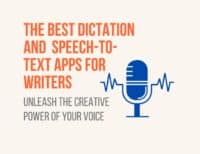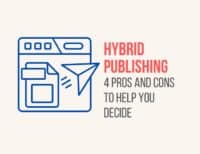In mid-2014, I quit my job as an accountant and became a full-time writer. Sounds like a dream right?

In many ways, becoming a full-time writer really has been a dream come true. Every day is exciting and I'm constantly growing and pushing myself. Would you like to write full-time in 2015 too?
If you want to become a full-time writer, here are five steps you can take:
1. Build Your Network
Connect with people you are naturally drawn to. Over time, authentic relationships will grow. Then when you need writing work, ask for it. The best options to contact others include Facebook messages, Twitter Direct Messages, Linked In messages, email, texting and phone calls. If you're not sure who to contact, a general inquiry status on Facebook is a decent start. When you reach out to someone, keep track of the response on a spreadsheet. Be careful not to just contact people when you need something. Instead, stay in touch with your friends intentionally.
Here’s the secret no one tells you: you'll likely have to say “yes” to some jobs you never pictured yourself doing. This is totally normal. Also know that many writing opportunities pay next to nothing. It’s possible you may have to pick up some of those. If you have a great network in place, you will spend more time writing and less time spent searching for new clients.
2. Manage Your Time
When you are the boss, you must have discipline. There is no way around it. Writing when you “feel like it” is a great way to have skinny kids, past due notices and a very unhappy landlord.
The timer will become your best friend as it lets you know how much time you have spent on a task. Otherwise, you could easily spend hours on “research” or social media. A great free app to consider is StayFocusd which is a plugin for the Google Chrome browser. It blocks time distracting apps after a set amount of time or just blocks them altogether.
Some days are simply more productive than others. To keep this in mind, measure your success in hours worked as well as words per day. Both metrics are important, not just the word count. Know you simply cannot write all the time. Your mental energy has to be refilled in some way, so spend some time with a book, exercise, take a nap and play with your kids. Again, use a timer or at bare minimum set aside some intentional time here.
3. Use the Right Tools
Figure out what works for you and use it. The less tools you use, the more mental energy you can devote to writing. For example, I use Microsoft Word for freelance work because it is required, Scrivener for ebooks and physical paper for outlines of rough drafts. Nothing else. If a change in tools is required, it is best to finish the current projects and then make the change. Otherwise, you slow yourself down when you try to learn how to use a new application and do your work.
4. Create Multiple Income Streams
Very few writers can live off just their books. Unless you have an entire library of popular books, you will need to diversify your income. Many writers choose freelance writing, speaking, editing or even teaching. I absolutely love the variety. And don’t forget—if you create great products, they can provide income for years to come.
5. Write A Lot
Talent isn’t enough. What matters is discipline. It is 10,000 times harder to be a full time writer than you think it will be. But it is totally worth it. Write intentionally and set a timer in specific amounts of time to maximize your efforts. I prefer the Pomodoro method because it is very similar to the “practice” used in the comments on this blog. You set a timer for twenty-five minutes and work until the time is up. After a five minute break, you work for another twenty-five minutes. This also is an easy way for you to know how much time you spend on a project.
A Final Word
Don’t fall for the myth that you have to be a full time writer to be a real writer. Albert Einstein wasn’t a full time scientist, he actually had a job at a patent office. This position gave him the income needed to live and in the evenings he worked on his dream. You alone determine your goals as a writer. If you want to become a full-time writer, by all means go for it. If you want to write and pursue other career choices, that is completely fine as well.
Do you want to become a full-time writer? Let us know in the comments section.
PRACTICE
For practice, do fifteen minutes of writing that you have been putting off. This will help you develop more discipline. If you want to go longer than fifteen minutes, by all means keep writing. The best part is this—as you you continue to build up your hustle muscle, you will find yourself writing more and more.
Don’t forget to share your work in the comments. How did it go? Did you spend more than fifteen minutes writing?







“Writing when you ‘feel like it’ is a great way to have skinny kids, past due notices and a very unhappy landlord.”
This should go on one of those “Hang in there!” cat posters. So good, and so true.
Good point Blake! You and I have had a few chats about this. Now you know why I keep pushing and pulling you into doing a podcast with me about the “real writing life” haha.
“Real writing life” connect me to that podcast !
Yes, I choose to say, “I’m a writer!”
how often do you write Michele?
Through December, I wrote daily/nightly! Completing a deadline on a 20,000 word novella contest. How about you!
This post motivated me to go back to a screenplay I haven’t touched in a while! Reviews are always welcome.
INT. – BRYANT LIVING ROOM
Jackson and Will are sitting on opposite ends of the couch. Will has a blanket drawn around his shoulders. Jackson is huddled in a ball, knees pulled up to his chest. A NEWS REPORTER on TV is discussing the attack on the school.
NEWS REPORTER: John Banyard High School in Cobble Hill was attacked today by five Necroids. Police officers arrived on the scene after the school’s alarm was set off and engaged the aliens. After a three hour battle, SWAT teams managed to subdue two Necroids with tasers. The other three were unaccounted for after pursuing students who had been eating lunch outside into the city. Two officers were killed and the injuries are still uncounted. No civilians appear to have been hurt. Curiously, the three Necroids who had left the premises were found only a few blocks away, unconscious and with severe injuries. As of yet the police are unsure who or what is responsible. Though civilian casualties have resulted from Necroid attacks before, this is the first time they have targeted a civilian institution and as of yet experts are unsure what has caused the change in tactics. Chief Fred Hausen of the NYPD says not to worry but advises “if you see something, say something”.
Mrs. Bryant enters the living room carrying two steaming mugs.
MRS. BRYANT: I made you hot cocoa.
WILL: Thanks Mom.
Jackson accepts his mug without a word. Mrs. Bryant sits in the empty space between the brothers on the couch.
MRS. BRYANT: Any new developments?
JACKSON: Not really.
Footage plays onscreen of Banyard High in the aftermath of the attack. The asphalt in the road is broken and trashed cars are being hauled away by tow trucks. The wrought iron fence is dented in places and every surface has been ripped up by gunfire and knives or scorched by the spaceship.
MRS. BRYANT: This is outrageous! People like your father give their lives to protect our
country and everything they sacrifice is undermined by an incompetent police force that can’t keep us safe when –
JACKSON: Mom, I really don’t need this right now.
MRS. BRYANT: How could they let children be chased by those monsters into the city,
unprotected –
JACKSON: I’m not a child!
MRS. BRYANT: You and Will could’ve died, Jack!
JACKSON: Yeah, I know, weirdly enough!
MRS. BRYANT: I could’ve lost you both! (her voice starts to tremble) Both gone, just like that…
She begins to cry in earnest, head in her hands. Will looks back and forth between Jack and their mother, terrified. Jackson slams the hot chocolate down on the coffee table and storms away.
What are Necroids?
A made-up race of aliens (not that I know of any real ones)
thats a start. now go write a movie! 😀
I am a writer and I would love to do it full time. I love to write but job and kids slow me down. my priority is my daughter and my second is my job. can’t get what you need if you do not work.. after my job is done. I sit down and write, which I love to do. writing six books. first one is almost done.
Kimberly, I have two kids and I can totally relate. This is where I think working with your loved ones to set aside time to write REALLY helps. Don’t forget babysit swaps—those help too. If you can write during naptime for your daughter, that is another chance for you as well. I know it’s super super hard. Keep hustling and do what you can! I wrote a post specifically about this if you’d like I would be glad to share that with you–just let me know!
I am a writer and want to write every day. My hurdles are lack of inspiration then too much inspiration. There are tidbits of good writing which don’t connect. Getting the story past an initial good start is where i get lost rather fizzle. Where’s my muse?
There are a few AWESOME books I’d recommend on this Dawn— Do the Work by Steven Pressfield (only on Amazon) is THE BEST creative/writing book for finishing your work.
I also just started (and it’s fantastic so far) The Modern Library Writer’s Workshop A Guide to the Craft of Fiction by Steven Koch.
I’m also wrapping up an ebook myself called “Write Now: Get Unstuck, Crush Writer’s Block and Tell Better Stories.” If you would like to email me I’ll send you a copy of my ebook when it comes out! jimwoodswrites@gmail.com
Jim, thank you for the read suggestions which I will look into. Will take you up on your offer to get your ebook when released; separate email forthcoming. Most importantly, for me, is to stick with my mantra ‘shut up and write’ a slogan I borrowed from a writing group in Austin TX titled as such.
Dawn, I have the same problem. I can write some pretty good scenes but I have trouble connecting them all.
Donna, would like to share methods of threading the writing pieces and sticking to a story to (near) completion. I am organized and have all my writings filed and categorized using Google drive to always have access when the writing bug strikes. Stringing the pieces – someday – would be a huge milestone.
I am definitely writing more than 15 minutes a day. I am about to complete the manuscript for my next book, which is due to be published this month, to start the New Year off right. This will be my second book and I have a third one that will be released in September of this year ahead of the holidays.
I am also a speaker and have other streams of income in the internet and network marketing industries. Writing is a discipline that you do just like exercising. You must form the habit first, then discipline yourself to do it every day, or when you schedule time for your writing.
There will always be distractions, so keep them to a minimum. When my creativity is flowing, I turn off the cell phone, the laptop, and get away from any distractions so I can write. I use a blue ink pen on white paper to write. I transfer it later to a word doc and save it.
The Guest Blogger did an excellent job and shared a message that resonates with all of us. Thanks for sharing.
Thanks Tom–really appreciate that! Turning off the distractions is so key. I’m curious–when you write by long hand (I do too) what is your process like after that? Do you have someone else type it up or do you do it yourself? I typically type it up myself and do some editing when transferring over.
I know some great authors like Chuck Palahniuk do this as well, just wondering how you handle it.
Great tips. The beauty about continuously writing is that it develops you as person in all those areas that might demand you to explore (speaking, editing, teaching..).
Some might jump might the gun and think, ” I need to study speech, get a english degree…blah blah.”
Just write, and everything will take care of itself.
I did a terrible job of writing regularly in 2014 and it showed. Once my kids are back to school after the break I will be ready to start that early morning habit again!
Love it Vicky! Any ideas for how you can keep yourself accountable in 2015?
Good question Jim. I really haven’t figured that out yet. I tried the 500 words habit and that didn’t work.
Being that of a hobby artist all my life, also having a background passion for writing, now starting my own blog-site. I can say there are definitely some challenges. I’ve actually had a block, since yesterday. Writing is very fun though, I aim to be full time at blogging. Full time at anything I want to do is my dream. Although, It’s hard at times, it’s very fun to write. It’s unlike any thing else out there, to be able to compel someone simply by choosing the write words.
I just published my first book, a short read called a “A Little Enlightenment From A Friend” on Amazon.com and Creatspace.com Thanks for the writing tips!!!
Writing is to write what you feel & write to express not to impress…for me writing is a expression of living thoughts to a real world..
I’m 20 years old, just passed college a couple months ago… Im so desperate considering wether i should quit my job for writting my first book, which ive been working on for 3 years, or just keep doin this job. i kindda regret applied for it, it stole so much time of me, my progress is too slow and I cant do the best because my energy were exhausted at night. The problem is, IDK if i quit my job i could earn and rely on it, but I really want to be a writter and Im sad everyday thinkin about it… Im very sad I couldnt finish my 300 pages of plots for more 600 pages of complete story ive been working on. Shit is real when you know your parent dont appreciate your drem and even push you down from it, at least they could respect it… sorry for my English, Im Asian
The one thing that I love most about writing is not only do you express your thoughts but also that it brings smile (depending on what you are writing) on readers face, and don’t forget that you go on a journey with the writer.
This is realistic info but also too common sense to be a article thanks for writing it anyway. Albert Einstein was a scientist that was always working on his dream even at work.